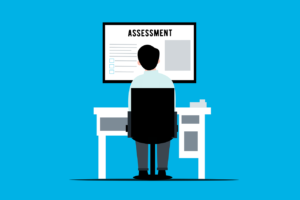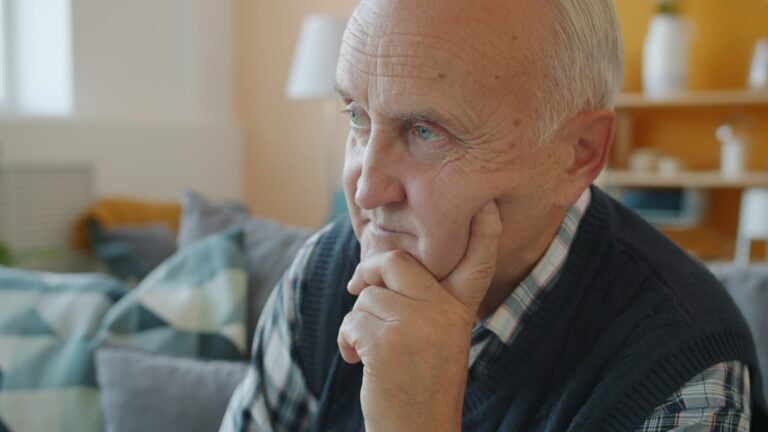VIDEO + ARTICLE:
The simple SAPPHIRE Eye Test has the potential to change the way that Alzheimer’s disease is detected and managed. Made by Cognoptix, see why the SAPPHIRE Eye Test should vastly improve the standard of Alzheimer’s care.
ACTON, Mass. — Cognoptix President Paul Hartung is the man behind the SAPPHIRE eye test, a potentially groundbreaking test for Alzheimer’s. This week, he disclosed that the company is at a very advanced stage of development, saying,
“We are preparing for a pivotal Phase 3 clinical study.”
Continued below video…
Mr. Hartung explained that, in the test, ointment is applied to the inside of participants’ lower eyelids the day before measurement. Laser scanning detects beta-amyloid in the eye by the presence of a specific fluorescent signature. SAPPHIRE then detects the specific fluorescent signature of ligand-marked A-beta in the supranucleus region of the human lens.
In past trials, the Cognoptix SAPPHIRE II eye test achieved a sensitivity of 85% and a specificity of 95% in differentiating 20 patients who were clinically diagnosed with probable Alzheimer’s from a group of 20 age-matched healthy volunteers. In addition, the SAPPHIRE II test showed superior correlation to PET (positron emission tomography) amyloid brain imaging, with 95% specificity for SAPPHIRE II, versus 80% for PET brain imaging.
There is a critical need for a fast, dependable, low-cost and readily available test for diagnosing and managing Alzheimer’s. Carl Sadowsky, MD, FAAN, Medical Director, Premiere Research Institute, West Palm Beach, Fla., is a principal investigator in the feasibility of the SAPPHIRE eye test. Dr. Sadowsky said,
"The simple SAPPHIRE eye test has the potential to change the way that Alzheimer’s disease is detected and managed.”
“Today, only about 5% of patients in the United States are diagnosed by Alzheimer’s specialists, and the remainder are diagnosed by non-specialists. Therefore, providing a technology capable of improving the diagnostic sensitivity and specificity of Alzheimer’s disease for the non-specialist will vastly improve the standard of care for patients with Alzheimer’s disease.”
James Wessler, who heads the Massachusetts and New Hampshire Alzheimer’s Association, said,
“Every 67 seconds, another American develops AD. It is time that we step up to address the impact of this disease.”
Anil K. Nair, MD, Director, Alzheimer’s Disease Center, Quincy, Massachusetts, captured the importance of the test by stating,
“The need of the hour is for a test that will not only improve the specificity of diagnosis but also be less expensive than PET brain imaging.”
Dr. Hartung concluded,
“We fully expect 2015 to bring us further significant progress toward commercialization of our non-invasive diagnostic eye test for Alzheimer’s disease, designed to allow treatment to start before significant neuronal loss and irreversible brain damage occur.”
- Cognoptix, a privately held medical technology company headquartered in Acton, Mass., is focused on developing and commercializing an in-office, drug/device diagnostic system—SAPPHIRE II—as an aid in the early detection of Alzheimer’s Disease. NOTE: The SAPPHIRE II system is approved for investigational use only in the United States.
SOURCE:
- Cognoptix, Inc.











